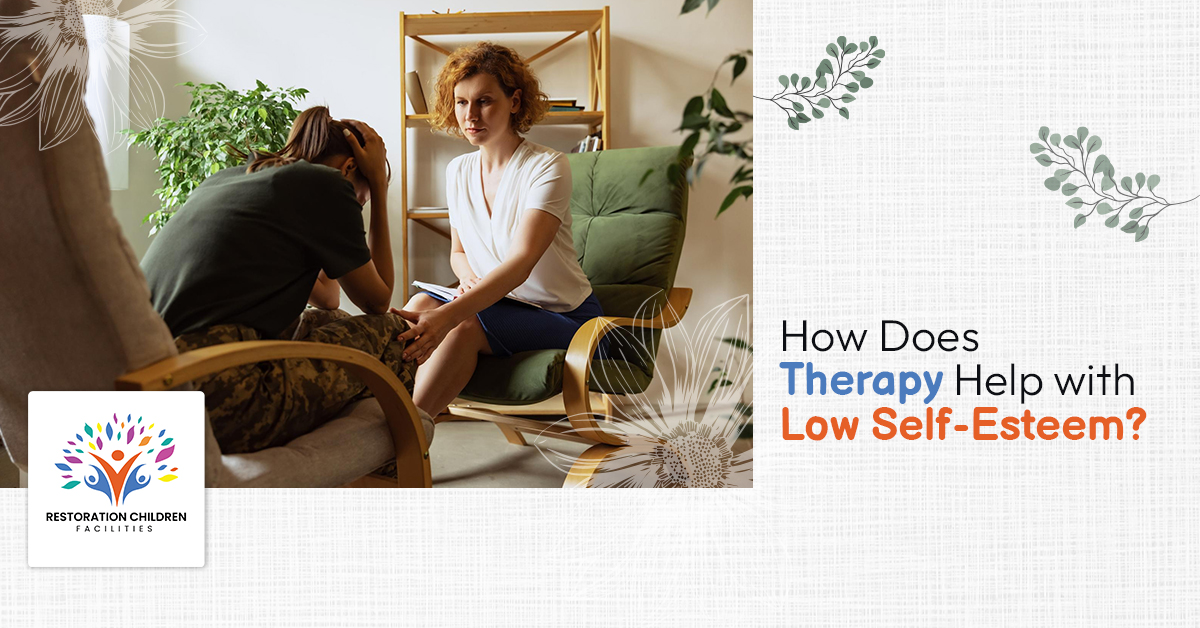At some point or another, we all have had those nagging doubts about ourselves, wondered what our real value is and felt inadequate.
A lack of self-esteem has become a common issue in many individuals every day, but the good thing about it is that it does not have to be like that.
Therapy is a remarkable resource for the restoration of value and confidence.
More importantly, what is the role of therapy and what can one anticipate during this journey of healing?
Let’s take a closer look at how therapy can help raise your self-esteem.
Here’s How Therapy Helps with Low Self-Esteem
And it is in therapy sessions where unresolved issues that may be harming your self-esteem can be unraveled.
A lot of us have things we believe about ourselves, which we have taken on board because of things that have happened to us in the past.
These perceptions go so deep that we are not aware that we are all guided by them in making decisions and acting.
Through therapy, you:
- Look into the actual causes of low self-esteem. Does it have anything to do with parental criticism in childhood? Personal failures? Impossible goals you set for yourself?
- Stop those unhealthy habits of negative thinking that hold you back, like self-criticism or perfectionism.
- Learn practical methods of handling failures and regaining your belief in a manner that is going to last.
It’s about letting you really see yourself for who you are without all that unwarranted judgment in the first place.
Breaking Free From Negative Thinking
Probably one of the hardest parts about low self-esteem is how it can trap you in these cycles of negative thinking.
You might be just thinking to yourself that you’re afraid you’re not smart enough to try that, or it’s impossible to be successful, so why even try anyway?
These thoughts can feel like they are operating on autopilot, but they are not facts, and therapy helps you to challenge them.
What Does This Look Like in Therapy?
- Cognitive Behavioral Therapy: CBT is most appropriate for handling issues regarding low self-esteem. It makes you recognize negative thinking structures and replace them with gentler belief structures.
- Mindfulness Methods: A lot of practitioners also employ mindfulness techniques to keep you more grounded in the moment and thus prevent your thoughts from going into a self-doubt and worry spiral.
- Therapeutic Empowerment Exercises: Rehabilitation exercises could involve participating in activities where you will be thinking about your strength, reveling in your small victories, and making realistic and achievable goals.
The voice inside you begins to sound supportive as you start to recognize it and challenge these patterns. And that is a big win!
Self-Kindness and Emotional Resilience
Why Is Self-Compassion Important?
Being nice to yourself means being nice to yourself even when things turn out differently than not perceived and understanding yourself as you would a dear friend.
This is how therapy builds self-compassion:
- Changing the inner voice: Professionals often encourage clients to re-narrate their inner voice. They may not consider a failure to represent a relapse but an opportunity for learning.
- Allowing you to experience emotions: Therapy can make it far easier for you to experience sadness, anger, or frustration without judgment. Just appreciating your feelings can vastly shift how you perceive yourself.
In this way, small but powerful psychological measures facilitate the development of psychological resistance, that is, the ability of a person to quickly recover from setbacks.
Learning Healthy Boundaries and Relationships
Low self-esteem isn’t only about how you think about yourself; it’s often externalized into your relationships.
You may find that you’re:
- People-pleasing
- Conflict-averse
- Shutting down about your own needs
- Some combination of the three
Therapy can assist you in learning ways to set limits so that your relationships feel enhancing, not depleting.
Signs of Progress Through Therapy
When you learn to set healthy boundaries, you might notice things like:
- Feeling less guilt about saying no.
- Valuing your needs and advocating for them.
- Building relationships where mutual respect is the foundation.
A Support System to Guide You
Targeted case management uses specific services involved in developing customized care approaches that help connect you with community services and tools that are highly detailed to your needs.
This multifaceted assistance can establish a stronger foundation for long-term development.
Next Steps
If this post speaks to you, then please get in touch to talk about the available therapeutic approaches.
At Restoration Children Facilities, we get how necessary it is to be seen and supported.
We have a compassionate team that focuses on getting people and families to better and more empowering futures.
We’ll help you rebuild the confidence and self-worth you deserve.
Visit Restoration Children Facilities
FAQ
What do therapists do to alleviate low self-esteem?
Therapists employ these to assist individuals in doubting the negative beliefs they have.
- CBT
- Mindfulness
- Other mental health interventions
What are the 5 C’s of self-esteem?
- Confidence
- Clarity
- Competence
- Connectedness
- Contribution
What therapy is good for self-esteem?
- CBT
- ACT
- CFT
Can therapy help build confidence?
Yes! Therapy gives you resources to be able to challenge self-doubt and reframe negative thinking.








No comment